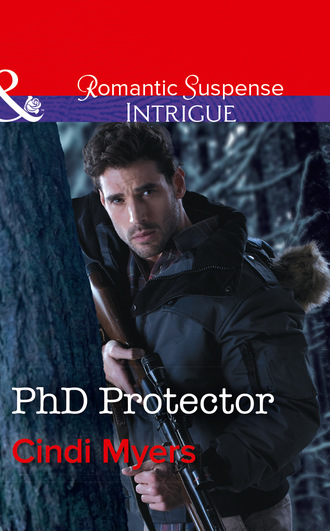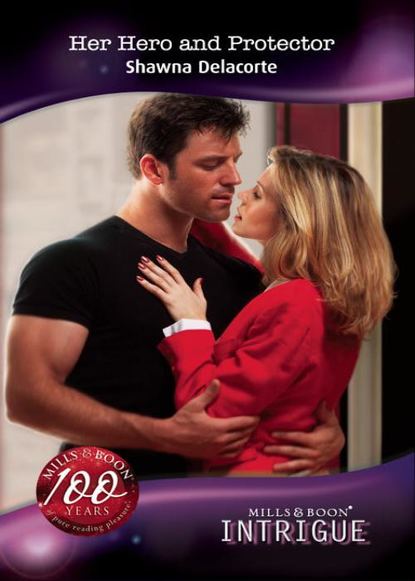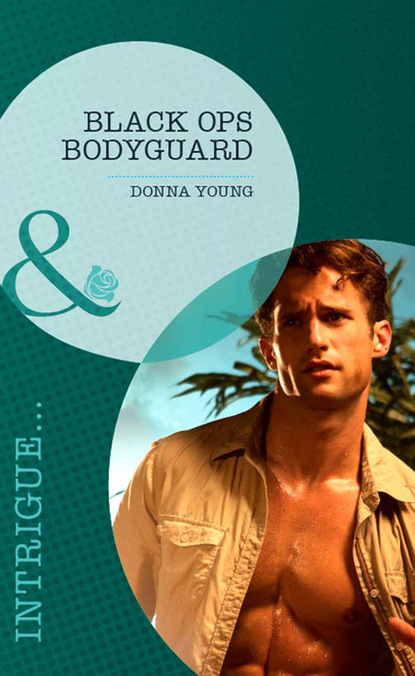
Полная версия
The Men of Search Team Seven
“But you’ve convinced him you can do it.” She sounded both horrified and fascinated by the prospect. “Why?”
“As long as I keep working for him, my daughter lives.” He grabbed a package of ham and another of cheese and moved away from the refrigerator, back to the table. “There’s bread in the cupboard over the sink,” he said.
She hesitated, then grabbed the bread and followed him. “You have a daughter?” She kept her voice low, just above a whisper.
“Mandy is five. She was four the last time I saw her.”
“Where is she?” Erin’s voice rose. “Duane isn’t holding her prisoner, too?”
“No, she’s safe. She lives with her aunt.” At least, he prayed that was still true. Mandy had been with his wife’s sister the day Mark left on the hiking trip from which he had never returned. He and Christy had both designated Claire as their chosen guardian for Mandy in their wills, so he had assumed his daughter had stayed with Claire after his disappearance.
“What happened to her mother?” Erin asked.
“She died two months before Duane brought me here.” He glanced up from spreading mayonnaise on a slice of bread. “Officially, it was ruled a one-car accident, but someone tampered with her car, I know. Duane wanted to send me a message about the consequences of not cooperating with him.”
Sympathy darkened Erin’s eyes. “I heard rumors about that kind of thing when I lived with him,” she said. “I wanted to believe they weren’t true. That no one would be that cruel and manipulative.”
“Oh, this is true.” When Christy had died, grief and rage at the man responsible consumed him. All these months later, he felt only numb.
“But how did you meet Duane in the first place?” she asked. “You don’t strike me as the prepper type.”
“No, I’m not. I had never even heard of Duane Braeswood when he stopped by my office at the University of Colorado one morning about eighteen months ago. He presented himself as a businessman who was interested in providing a grant for research. I was naive enough to be flattered.” How many times over the past year had he wished he had had the sense to see through the madman’s ruse and refuse to ever speak to him?
“And once he had snared you, he wouldn’t let go.” She nodded. “He’s done it before. He identifies something he wants and then uses whatever means possible to get it.”
“At first, he tried to sell me on the scientific advantages of working for him—a private laboratory with top equipment, an endless supply of resources, eventual fame and fortune, and a key role in his new world order.” He grimaced. “When that didn’t sway me, he turned to threats. I didn’t believe him. I thought he was a crackpot but harmless. I found out too late that he was anything but.”
“I’m sorry about your wife,” Erin said, all the hardness gone from her voice.
“Thank you.” He swallowed, regaining his composure. “When he threatened my daughter next, I knew I didn’t have any choice but to cooperate.”
“So now you’re trying to do the impossible.”
“I’m the best—or one of the best—nuclear physicists in the country.” He raised his voice for the benefit of anyone who might be listening in. “The organization supplies me with anything I need, from high-grade uranium ore to the most sophisticated equipment. It’s only a matter of time.” He met her eyes, letting her know he was lying through his teeth.
“And I’m supposed to help you.” She stared down at her completed sandwich. “I don’t know the first thing about nuclear physics.”
“You’re a math teacher. That should come in handy. You can help me with my calculations.”
She looked around the cabin again. “You don’t have a computer?”
He shook his head.
“And I don’t see any books. Don’t you need reference materials? Formulas?”
He tapped the side of his head. “It’s all in here.” He almost laughed at the skepticism that was so plain on her face. “No, really. I have a photographic memory. I’ve memorized all the textbooks and formulas and manuals. Once I read something, I remember it. Some of my colleagues thought I was a freak, but it made me the perfect candidate for Duane’s little project.” Finding out how thoroughly the Patriots’ leader had vetted him had made Mark feel even more vulnerable and helpless, as if there was nowhere to hide from Duane’s reach.
“I thought photographic memories were something people made up for movies and books,” she said.
“No, it’s a real phenomenon. Something to do with how the person’s brain is wired. There may even be a genetic component in this case. My mother had perfect pitch. My twin brother never forgets a face.”
“You have a twin?”
“Yes. Luke is an FBI agent. He’s part of a special task force composed of people like him—super-recognizers who never forget a face.”
“An FB—” She shook her head. “Then Duane is an idiot—and I don’t care who hears me say that.”
“Duane believes he’s untouchable,” Mark said. And maybe he was. The man had managed to get away with murder—literally—for a while now. “I know Luke is looking for me,” he continued. “But Duane is hunting him, too. He’s made it known he’ll pay a big bonus to anyone who kills a Fed.”
“He bragged about it to me, too.”
He studied her, wishing he could decipher people as easily as he could chemical formulas. Was she telling the truth about how she had ended up here, or was this merely one more way for Braeswood and his bunch to mess with Mark’s mind? “Why did he send you here, really?” he asked, leaning toward her. “I don’t need an assistant for this project. Are you here to spy on me? Will you report back to him everything I’ve said?” He ought to be afraid of those consequences, but after all this time trapped here with no way out he would welcome a bullet to end it all.
“You really think I would work for people like them? That I could believe in their sick plots or condone anything they do?” She shoved the sandwich away and glared at him, cheeks flushed, eyes blazing.
“Accusing me isn’t the same as denial,” he pointed out.
“No! I don’t want anything to do with those monsters. And I don’t want anything to do with you.” She stalked away and sat on the end of the unmade bed, her back to him.
Even from across the room, he imagined the heat of her anger washing over him. He welcomed the warmth, the intensity of the emotion, the life in her. For so long now—before they had even brought him here, since Christy’s death—he had felt cold and hollow inside, more robot than man. Only his daughter had been able to stir him, her tiny breath able to coax sparks from the few coals of life left inside him.
Then she was gone and the fire had died altogether. He had gone through the motions of living, but had felt nothing.
Now Erin was here, all fiery anger and glowing life, making him remember things—hatred and hunger and sex. Somehow being near a woman, after so many months with only the company of other men, reminded him of his own humanity. He wasn’t dead after all, but he didn’t know if that knowledge was good or bad. Living meant feeling—risking and caring and hurting. All things he had told himself he couldn’t afford to do again.
* * *
ERIN ENVIED MARK’S COMPOSURE. She couldn’t sit still, agitation driving her to pace. She had lived with fear for so long it was part of her makeup now, like the color of her hair or the shape of her face. Even years after she had left the family compound she continued to look over her shoulder, expecting her stepfather to make good on all the threats he had hurled at her when she’d walked away from him. Duane had a need to control situations and people. If you thwarted him, you could expect to be punished.
He had bided his time, but he had finally exacted his revenge, though she still wasn’t sure of his final plans for her. She kept expecting his thugs to come back for her—to tie her up again and tell her there had been a change of plans, that this remote cabin wasn’t her real destination. This place was too bizarre, even for Duane. Did he really believe he could build a nuclear bomb in a place like this? With a scientist who didn’t even bother to look at a book?
She risked a glance at Mark, who had returned to work at the lab table. He wore goggles and a mask and was working with his hands in heavy gloves, manipulating something inside a large glass box. Maybe the protective gear was because the material in that box was radioactive. She wrapped her arms around her shoulders to ward off a sudden chill.
She couldn’t figure Mark out. The story he had told her—about his wife and little girl—was horrifying. She was pretty sure Duane had killed other people, so why not Mark’s wife? But how could Mark be so calm about his situation? She had spent every waking moment for the last six weeks trying to figure out how to escape from her captors. She had almost succeeded twice—she still winced, remembering the beatings she’d received when she had been caught. But Duane hadn’t let them kill her or rape her or otherwise harm her. She had thought he drew the line there out of consideration for her mother, but now she wondered if it was because he had other plans for her. Plans that included the enigmatic Mark Renfro.
Her stomach growled. The sandwich she had made earlier still sat on the kitchen counter, so she retrieved it and took it to the table to eat. Mark glanced up from his work. “They usually bring dinner by now,” he said. “Since they haven’t, we may have to make do with cold cuts.”
She shrugged. She didn’t want to talk to him, didn’t want to get any closer to him, but curiosity—and maybe loneliness—weakened her resolve. “What are you doing?” she asked.
“I’m using a solvent to extract pure uranium from powdered ore,” he said. “The process takes a couple of days, but there’s a lot of high-grade ore in this area. I think that’s why Duane was interested in the property in the first place. Some things I’ve overheard make me think he hasn’t owned the place long—that he acquired it specifically for this purpose. The remote location suits his purposes well, too.”
“I still don’t understand how you convinced Duane you could make a bomb out here,” she said. “He’s insane, but he isn’t stupid.”
He removed his hands from the box, pulled down the mask and pushed up the goggles and faced her. “I didn’t convince him of anything. He decided it could be done and chose me to do it.”
“But what made him think it was even possible?” she asked. “Don’t you need, I don’t know, a particle accelerator or something like that?”
He chuckled. “Actually, in the 1960s, three physics students working in a small laboratory were able to design a functional bomb. The United States government paid them to make the attempt. They wanted to see if it was possible for a few people with a limited amount of knowledge and not a lot of sophisticated equipment—a situation that might crop up in an underdeveloped country, for example—to make a nuclear weapon. Turned out they could. The government called it the Nth Country Experiment. You can read about it online if you’re interested. And in 1994 a teenage Eagle Scout built a nuclear reactor in his backyard, using materials he found around the house.”
“So you really could build a bomb?” The idea made her skin crawl.
“I’m sure I could, given enough time and the right materials.” He scrawled something on a piece of paper and passed it over to her. In case anyone is listening—building a bomb isn’t the problem. Building one small enough for one person to carry around inconspicuously is.
She nodded and crumpled the paper, holding it tight in her clenched fist. “I still don’t see how I can help you.”
“Perhaps you’re merely here to boost my morale.”
She narrowed her eyes. “Don’t get any ideas.”
He frowned. “I only meant that having someone to talk to is a nice change.”
Right. Maybe she had grown too accustomed to the company of Duane’s goons who, despite their boss’s orders not to lay a hand on her, spent plenty of time leering and making lewd remarks. “How have you kept from going crazy, alone here for so many months?” she asked.
“I try not to think about it too much,” he said. “And I focus on the work.” He turned back to the lab equipment.
She stared at his back for a long while, then stood and walked to the window. He could focus on work all he wanted, but she was going to focus on finding a way out of here.
In different circumstances, she might have enjoyed the view out this window. The cabin sat on a slight rise at the edge of a valley. Feathery junipers and piñon pines dotted the rocky ground amid a thick blanket of snow. A few hundred yards beyond the cabin the land fell away in a steep precipice. Across from this gorge rose red rock mountains, the peaks cloaked in white, the setting sun painting the sky in brilliant pinks and golds. How ironic that such a peaceful-seeming place could be the source of potentially great destruction.
A cloud of white off in the distance, moving in their direction, caught her attention. “I think someone’s coming,” she said.
Mark was by her side within seconds. “That looks like Duane’s entourage,” he said, as three black Humvees slowly made their way up the narrow, rutted track. A guard who must have been seated on the other side of the door rose and walked to the edge of the narrow porch, an automatic rifle cradled in his arms. When the vehicles stopped in front of the cabin, the guard snapped off a salute.
Erin didn’t even realize she had backed away from the window until she bumped into Mark. He rested one hand on her shoulder, steadying her, and she fought the urge to lean into him. She didn’t even know the man, and didn’t fully trust him, yet she felt safer with him than with any of those on the other side of the door.
Men piled out of the first and third vehicles, all dressed in camo and bristling with weapons. One man unpacked a wheelchair and set it up next to the middle vehicle, while another man opened the back door of this Hummer, leaned in and lifted out Duane Braeswood.
Mark sucked in his breath. “Is that really Duane?” he asked. “What happened to him?”
Instead of camo, Duane wore a black suit and turtleneck. His thin body was twisted and hunched, and tubes trailed from his nostrils to an oxygen tank that one of his goons hooked to the back of the wheelchair.
“You didn’t know?” She had been shocked, too, the first time she saw this sick, diminished version of her stepfather. But he was diminished in physical stature only. His spirit had struck her as stronger than ever.
“I haven’t seen him in almost a year,” Mark said.
“Don’t let his appearance fool you. He isn’t weak.” Despite his disability, the man in the wheelchair radiated power, with every man out there focused on him.
The group headed for the cabin, two of the men lifting the wheelchair, with Duane in it, onto the porch. Mark pulled Erin into the middle of the room as locks snicked and the door opened.
She forced herself to look at her stepfather, to meet the blue eyes that burned feverishly in his withered face. “Erin, dear.” The sound of her name on his lips made her flinch. “Your mother sends her greetings.”
She bit back a curse, aware of the guards looming on either side of him. She had found out the hard way what they thought of any slur on the man they viewed almost as a religious figure. “How is my mother?” she asked, because she wanted desperately to know, though she knew Duane would tell her the truth only if it suited him.
“Helen is fine.” He rolled his chair toward the lab. “Renfro!” The strident voice seemed incongruous coming from such a weakened frame. “What progress have you made?”
Mark walked to the workbench, unhurried, his hands in the pockets of his lab coat, the picture of the singularly focused genius who couldn’t be bothered to worry about anything outside of his work. “I’ve almost perfected the refining process,” he said. “And I’m accumulating the quantity of uranium I’ll need for the project.”
“You need to finish within a week,” Duane said.
Mark’s expression didn’t change. If anything, he looked even more bored, eyes hooded, his expression guarded. “I can’t promise that. The process takes as long as it takes. I can’t change physical laws.”
Erin didn’t see any signal from Duane, but he must have given one. Without warning, two men seized her arms, while a third forced her head back.
“Leave her alone!” Mark shouted, all semblance of boredom vanished, but the fourth guard held him back.
Erin tried to struggle, terrified her captors intended to cut her throat. But the two men who held her remained immobile, impervious to her kicks and shouts. A third man wrapped something hard and cold around her throat. She heard a click, and all three men suddenly released her.
“I wouldn’t make any sudden movements if I were you, Erin.” Duane’s voice had its usual smooth cadence. “The mechanism in your new necklace is fairly sensitive.”
The three goons stepped back and Erin grabbed at her throat, grasping the thick metal collar now fastened there. The edges chafed her skin and the weight of it dragged at her. “What have you done to me?” she demanded.
“You’re wearing an explosive device,” Duane said, as calmly as if he had been commenting on the weather. “It has a timer, and is set to go off exactly one week from today.” He turned to Mark. “You deliver the product as promised by then and we will remove the collar.”
“Why such a hurry now?” Mark asked. “You’ve waited all these months, why not a few more to make sure things are done correctly?”
“I’m done with waiting.” Duane’s voice was strident, his face red with strain. “You will have the device for me in a week.”
“And if I don’t?”
“Then the bomb goes off and you both die.”
Chapter Three
Mark stared at the man in the wheelchair. The eyes that looked back at him were as cold and untroubled as a mountain lake. Erin had been right—whatever physical ailment had reduced Duane to a husk of his former self, it hadn’t diminished his madness. A man with eyes like that might very well kill his own stepdaughter just to make a point. But delivering what Duane wanted within a week—or even within a year—was impossible. Mark chose his words carefully, wary of upsetting his kidnapper more. “Mr. Braeswood, building a...an apparatus such as you require isn’t like baking a cake. I can’t just throw a bunch of ingredients together and come up with a viable product. I need time and—”
“You’ve had time,” Braeswood snapped. “If I don’t have what I want in one week, you both die.”
And even if I could deliver your bomb, we would still die, Mark thought. Duane wouldn’t leave any witnesses to his plans. “You’re asking for the impossible,” he said.
“You’ll have your bomb. Next week!” Despite the constricting collar Erin turned her head to face Braeswood. “Mark is being a typical scientist—overly cautious. He was telling me earlier that he’s almost ready to assemble it. With both of us working together I know we can meet your deadline.”
“Erin.” Mark sent her a warning look.
Her gaze burned into him, pleading with him to go along with her lie. Her terror swamped him. Maybe he would feel the same if he had a bomb at his throat. “Sure,” he said, dropping his gaze to the floor. “There’s still some work I need to do...with the plutonium-catalyst ratios.” There was no such thing, but Mark had learned that Braeswood appreciated it when he threw around scientific jargon.
“Excellent.” Braeswood’s voice sounded much stronger than he looked. Floorboards creaked as he turned his chair and rolled back to the door. “I’ll see you next week, then.”
“You can’t just leave me like this!” Erin’s voice rose, on the edge of panic.
“So impatient.” Braeswood regarded her coolly. “You were that way as a child, too, never content to wait for a reward, no matter how hard I tried to teach you. I would have hoped that maturity would have curbed that unfortunate character trait, but I see it has not. This should be a good lesson for you.” He nodded to his henchmen and one opened the door while two others hoisted the chair.
The locks snapped into place again after the door closed behind the entourage. Car doors slammed, engines growled and the pop of tires on gravel gradually faded away.
Erin sank into one of the kitchen chairs, as if her legs would no longer support her, her hands clutching the collar. “I can’t believe this is happening,” she moaned.
Mark’s hands knotted into fists and his heart hammered, emotion rocking him back on his heels. He recognized rage—something he hadn’t felt, something he hadn’t allowed himself to feel, in months. The intensity of the feelings caught him off guard. He was furious with Braeswood and his men, but also with himself. Why hadn’t he done something to stop them? Why hadn’t he protected Erin? And what was he going to do to help her now? He may have given up on life, but she deserved to live.
He pulled his hands from his pockets and moved to her side. “Can I take a look at the collar?” he asked.
She dropped her hands to her lap and looked up at him. “Do you know anything about disarming bombs?”
“Not a thing, unfortunately.” He studied the collar, which was gold colored—plated, he imagined, with platinum or aluminum or some other sturdier alloy beneath. About three inches wide, it fastened at the back with a locking mechanism similar to a seat belt, the halves fitting tightly together. The explosive device sat front and center, the size of a pack of playing cards, comprised of wires and button batteries and a glob of yellowish plastic he suspected was the explosive. Who had made this horrible yet ingenious device for Duane? Did he have a combination jeweler-explosives expert in the ranks of his followers? Or was he holding another man prisoner, compelling him by threat or force to do Duane’s malevolent bidding?
Mark brushed his fingers along the sides of the collar, the hot flutter of Erin’s pulse beneath his fingertips sending a jolt of awareness through him. The contrast of her silken flesh with the unyielding metal made her seem all the more fragile and out of place here—like finding a lily blooming in the middle of a minefield.
“Can you cut it off?” she asked.
“I don’t think we can risk it,” he said. “It looks as if there are wires embedded in the metal and running all the way around. My guess is if we sever one of those the bomb would go off.”
She swallowed hard, her eyes as big and dark as a terrified deer’s. “What are we going to do?”
He looked away, at the lab equipment arranged neatly on the workbench, at the sparse furnishings and barred windows of the place that had been his prison for the past fourteen months. “We need to get out of here,” he said. “We need to get you to someplace with people who know how to disarm something like this.” The FBI had experts who could deal with this kind of thing. If he could get to Luke, his brother would know what to do.
“How are we going to get away?” she asked.
If he knew that, he would have left months ago. Escaping from the cabin might not even be the most difficult challenge. Once they were free, they would have to cross miles of wilderness in freezing weather before they could even reach a road, or a telephone they could use to summon help. “I don’t know.” He dropped into the chair across from her. “I tried everything I could think of when I first got here. I was always caught.” Caught and punished. He closed his eyes. He understood now that it wasn’t merely confinement that wore down prisoners—it was the utter helplessness, the loss of control over even the simplest aspects of life.
“How many guards are there?” she asked.
“Two at a time—one on the front door and one on the back. They work eight-hour shifts, so that means six men a day, plus two others that rotate in and out when one of the others needs to take a day off. They’re armed with semiautomatic rifles and unlike the men in books and movies, they don’t fall asleep or get distracted.” He had spent many hours in the early days of his captivity studying his guards and trying to learn their patterns and spot any weaknesses. Unfortunately, he hadn’t identified any of the latter.












